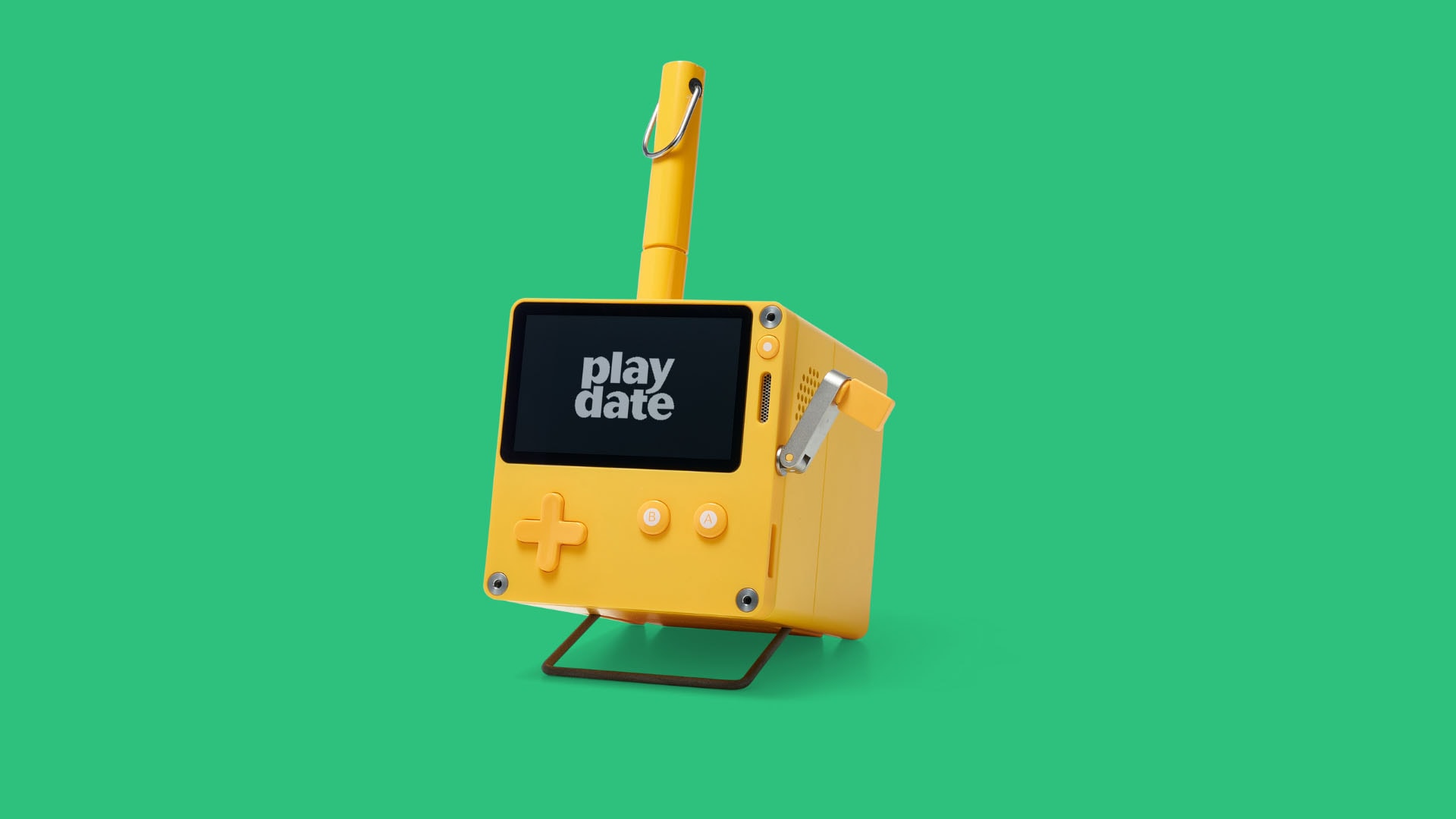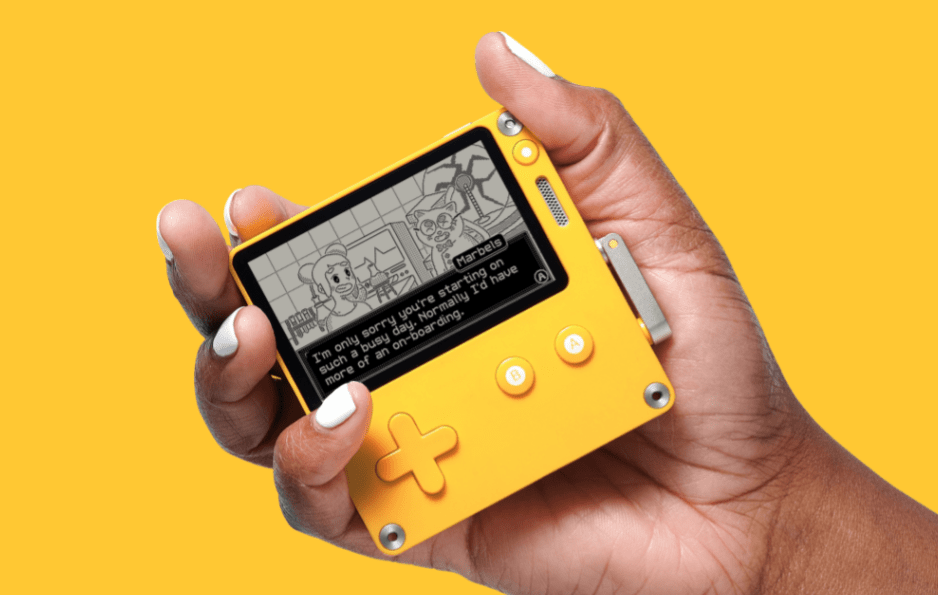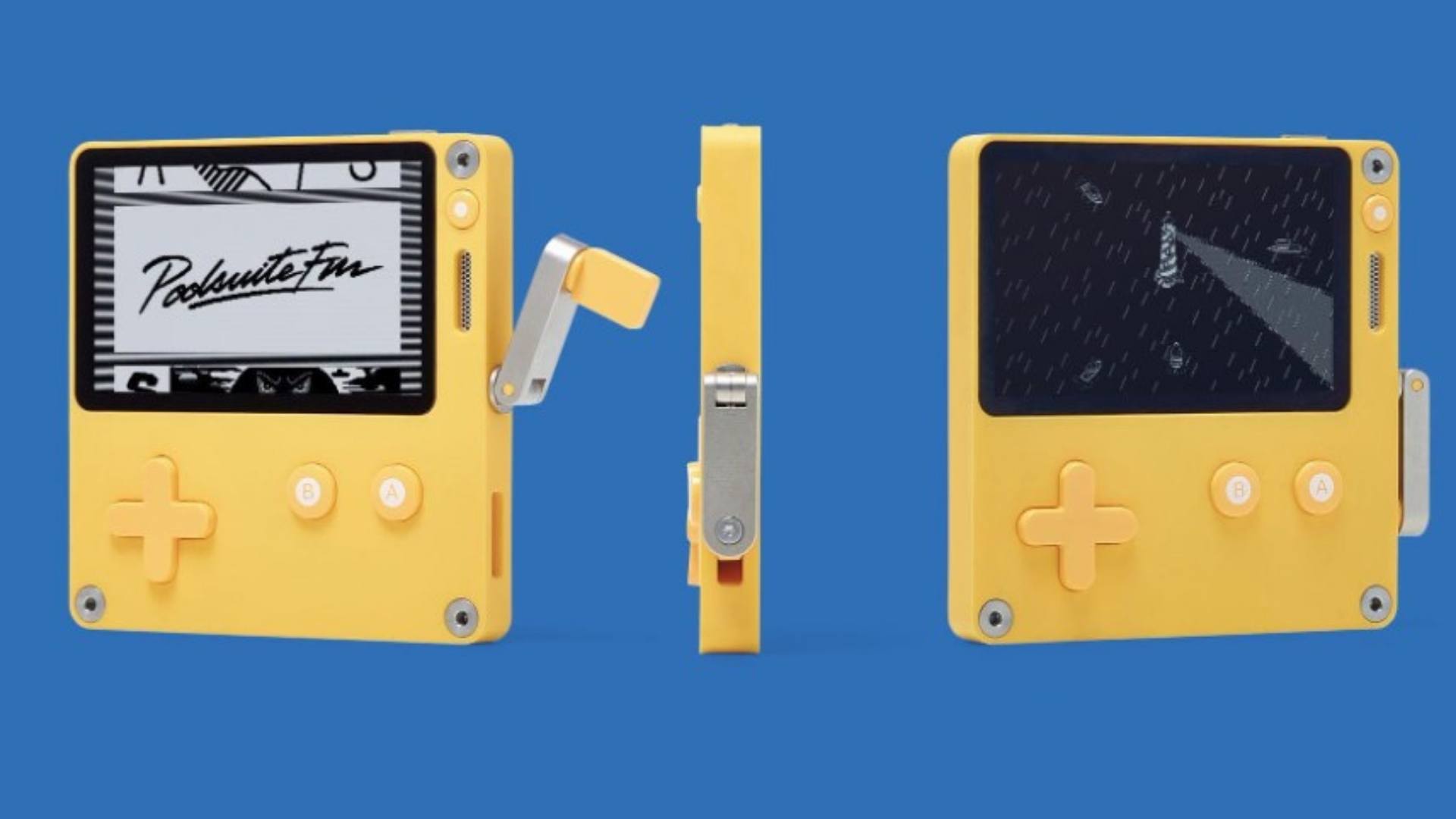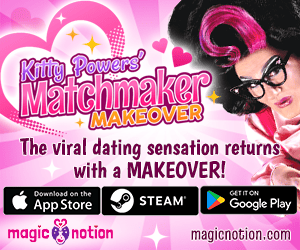
Is the Playdate the perfect console for breaking barriers?
The Playdate – a console with a quirky little crank that looks ridiculously satisfying to use – is set to come out very soon. It brings a whole season of games, 24 in all, and Playdate owners will receive two of them each week from the moment they first turn on their console.
Oh, and those games? Completely free and are nicely packaged into a little thing called Seasons. Think of it as a season pass, only you don’t feel guilty when you play anything else.
In an industry where consoles and platforms are constantly evolving, usually by getting bigger and better, Panic’s small console, with its tiny screen and unique crank, stands head and shoulders above what you’d expect a console to look like. It’s a design that lingers in the mind, Oh, and it also works as a pen holder too, because why not? Eat your hearts out, Sony, Nintendo etc.
We had the opportunity to speak to a handful of the people working on the Playdate, as well as the developers who have games releasing on the platform, so get a drink, sit back and put on some relaxing music. This feature is a big ol’ chonker.
The team at Panic has been making software for nearly twenty years. They’ve mostly focused on apps for the Mac, so building a hardware product completely from scratch was a challenge, but one that Greg Maletic, Director of Special Projects at Panic and the Playdate Project Lead, tells us was very enticing.
“We came up with a bunch of ideas, a calculator and a clock among them, but a handheld game, like the old Nintendo Game & Watch, was what we landed on,” Maltic explains. “Initially we thought it’d just play one game but we eventually came up with the idea: what if your Playdate magically transformed itself into a new, surprise game each week? That’s where the idea of Playdate’s ‘Season of games’ came from.”
The first Season includes 24 games of all sorts of genres, designed with love and care from developers with diverse backgrounds.

While the first Season of games will be completely free, that won’t necessarily be the case for future Seasons.
“We funded all the games that are part of the [first] Season, and all the teams that created games will be also getting a percentage of revenue from Playdate sales,” Arisa Sudangnoi, Playdate Developer Relations Lead, explains. What stood out in our discussion about Seasons, however, is the implication that the team at Panic is very much in the reaction stage for the Playdate – gauging whether there is interest for the platform in the first place and, if so, whether the Season format has been well-received by players. It was implied that if the Seasons don’t work out, there could be other methods of distribution. Sudangnoi mentioned that the team has considered an “on-device game store”, which sounds similar tof the Microsoft and PlayStation stores, where players would be able to pick and choose which games they’d like to purchase and download on their Playdate.
The distribution of games doesn’t just stop at the developers that Panic wishes to work with, though. Alongside the cute yellow console, Panic is also making their software development kit (SDK) available to everyone for free, as well as Playdate Pulp – a web-based, all-in-one game studio and maker that allows developers to create a game without having coding experience. All you need is an imagination and a willingness to learn, which helps when you’re designing a game for something as fun and strange looking as the Playdate.
With Pulp, Panic wants new devs to have the chance to bring their vision to life through the art, writing, and sound – rather than a focus on “the nuts and bolts” of how to make the game do X, Y and Z.
“As the Playdate SDK evolved and developers started using it, we wanted to make sure that the experience of making a game for Playdate was available to the widest possible audience,” Neven Mrgan, designer at Panic, tells us. “Someone who has never coded a game before should be able to make one for their Playdate. I myself am one such person; my kids also are.”Mrgan clarifies that the inspiration for the focus on art and narrative and not the finicky parts of game development, was all down to Adam le Doux’s Bitsy, a web-based game editor focused on “map-like” games. Bitsy games are usually small games where the goal is to focus on characters, locations, and the narrative potential of each feature. It’s led to some incredible personal stories – such as moving country, meeting up with people after a long time of not seeing one another, and even the art of flirting – being turned into gaming experiences. If that can be done with Bitsy, it’s clear why Panic would want the same for Pulp.
An easier way to develop games for more experienced developers who are looking to branch out and get their creations on the Playdate is admirable enough – but that isn’t the only goal for Pulp. Panic also wants its development tools to be used by developers in underrepresented communities, where they can develop their own games without having to go out of their way to pay for them directly via a subscription or a one-off payment. Pulp is completely free and accessible through an internet connection – no downloads are necessary. This was a purposeful choice from Panic, as being a web app means Pulp can run on more than just a few platforms, and the team “aims to make all features usable by keyboard, mouse, and touchscreen inputs” as well. Hell, your game can even be played through Pulp, particularly useful for creators who perhaps don’t have a Playdate to test their creation on.
With every game on the Playdate being so unique, we were curious about just how the team at Panic decided who and what to include in their first Season of games for the console. For Sudangnoi, who joined the team in January 2020, after many of the games for the Playdate had already been finished or were nearing the middle of development, the choice of what to include mostly rested on the shoulders of those behind the games. It was also pretty much decided that the first Season of games would include a variety of genres, as that would best highlight what the Playdate was capable of doing in the first place.
However, there was an issue: how to get the attention of the consumer outside of the unique design of the console. As cool as the Playdate looked, what sells a console is often rooted in what games and features it has on offer. After all, it would be their first and only chance to make a good impression, and they had to do it right. The team at Panic needed to find development teams with prestige when the console was first revealed to “drum up excitement”, something with Sudangnoi admits caused them to focus on mostly “white cis men developers, overshadowing folks from marginalized communities who were part of Season One, and sending the wrong signal about what Playdate stands for. We learned a lot the hard way.” Since then, Panic has brought in more teams from marginalized backgrounds to work on the Playdate and, if there is indeed a Season Two, Sudangnoi tells us that they are looking to include even more diverse developers and teams at the very start.

One such team is Sweet Baby, a narrative development and consultation studio based in Montreal and founded in 2018. Sweet Baby has worked on a handful of video games since the start of their journey, partnering with clients on games like Hyper Light Breaker, Sable and the upcoming Goodbye Volcano High and Suicide Squad: Kill The Justice League. Now they’re creating their own game: Lost Your Marbles.
Lost Your Marbles is a visual novel that follows the journey of protagonist Prota as she makes her way through Pomegranate Village on a quest to find her lost dog, Minty, before the town’s festival ends. The game is exclusively made for the Playdate, a conscious decision due to the system being so approachable for first-time developers.
“At this point, we’ve worked on three projects, all of which having a measure of first-time devs, and the fact that Panic was not only on-board but super receptive of this has been a breath of fresh air. It’s enabled so many people to get a foothold in this industry.” David Bedard, Narrative Director from Sweet Baby, tells us. “Because of the platform’s limitations AND potential, we really see it as an environment in which it is not only safe but encouraged to experiment with new ideas. A place where we can break out of the established convention, and create something that wouldn’t be possible on any other platform. A place where we get to collaborate with truly amazing individuals who can finally let loose and show everything they can do!”
One thing that did become clear during our line of questioning: these games have very little intervention between Panic and the development teams outside of a few small changes, and even then, those changes were extremely minimal. “We tried to keep their content within the bounds of what we thought a general Playdate audience would feel comfortable with. […] It wasn’t much of an issue: we maybe toned down a swear word or two, but that was it,” Maltic says. Nevertheless, while there were no huge changes in regards to in-game content, the games created for the Playdate obviously needed to be tested to see if the console and the games would work in harmony. This task was led via the QA team at Plastic Fern Studios, whose suggestions led to a few tweaks here and there, but nothing fundamental was changed.
Even with these small changes, the content within each game has been kept as close to the original vision as possible in order to reflect the authentic vision of the developers.

“Games are a reflection of the people who make them, so if the teams making the games are diverse, then the stories will be as well,” Sudangnoi said. Some games have dancing animals, some are visual novels, some are doing cool tricks with a surfboard, and all will reflect experiences that may not be similar to our own. For Panic, that’s the power of the games they’ve picked for the Playdate, and is just one of the few reasons why they aim for the console to be seen as not just a space for marginalized developers to get their time in the limelight with their creations, but to do so on a platform that values them beyond consumerism.
“I care about providing a safe place for marginalized folks and I see our team does as well.” Sudangnoi says. “Showing that this is important to us through the partnership with Sweet Baby to fund and mentor two teams of marginalized backgrounds, consciously including marginalized game developers in our Season and developer community, as well as moderating and providing clear community rules so that there isn’t a place for toxicity will be very important in providing a safe place.”
While the future of Playdate is not set in stone, the desire for the platform to evolve over time is there. Right now, the team over at Panic only has one thing in mind: get the Playdate out of the door – all while making sure it works reliably – and into the hand of customers. Whether the Playdate really will be a console that’ll break barriers for new and underrepresented game developers remains to be seen.
For more information about the Playdate, as well as the games debuting on the console with Season One, you can visit the official website.





